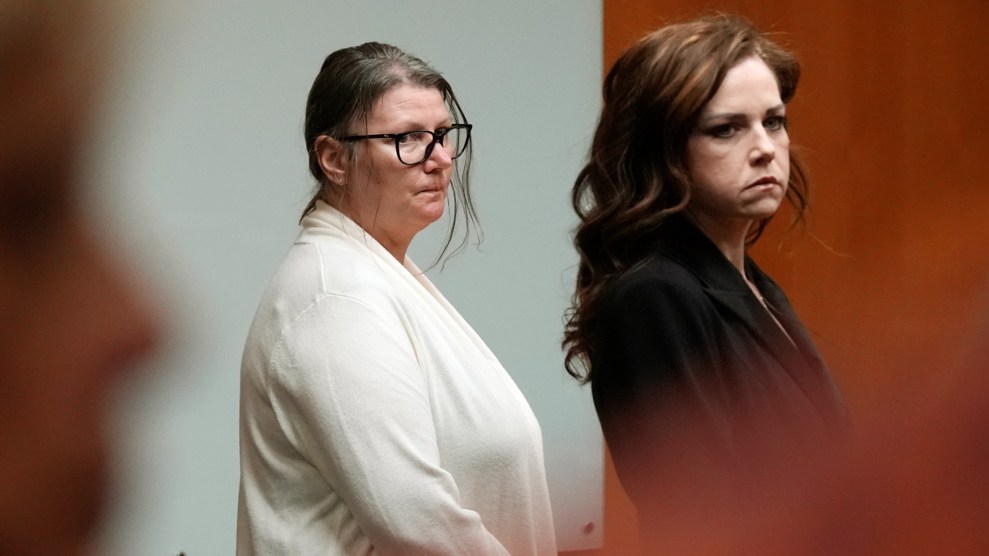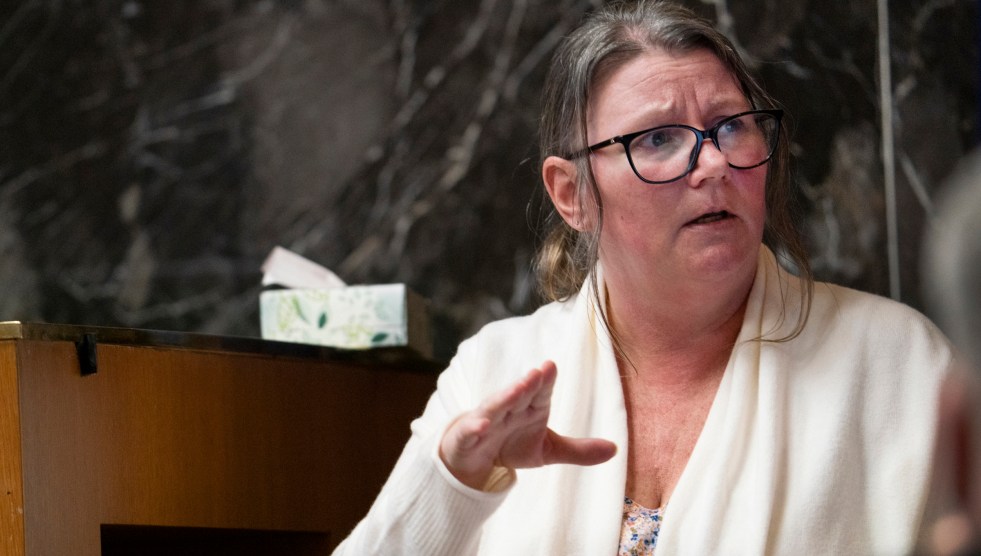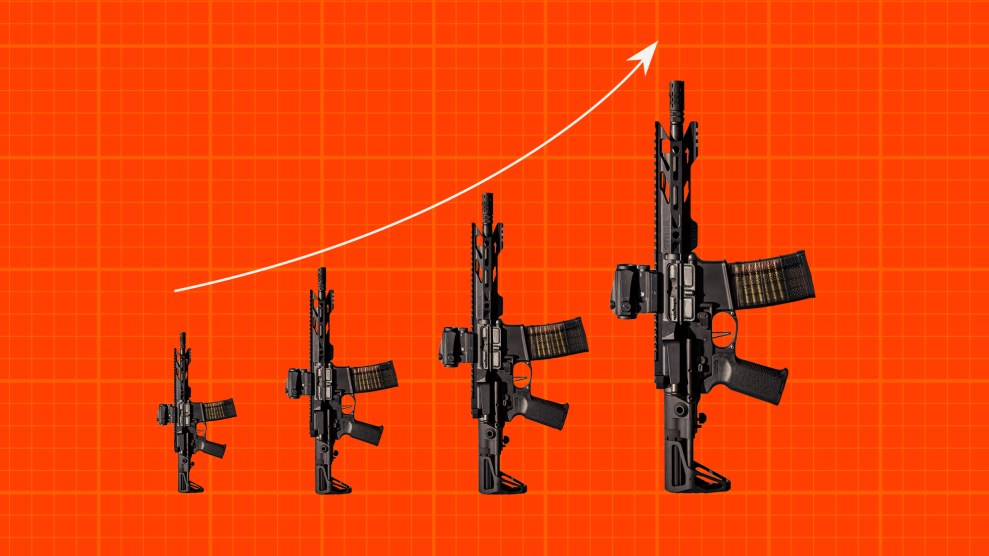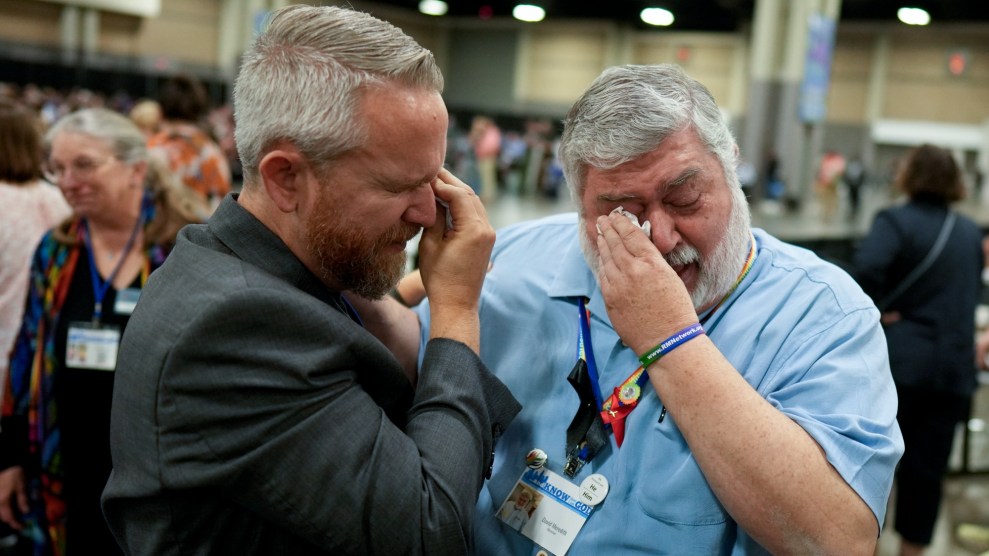
Carlos Osorio/AP
While some advocates have heralded a Michigan jury’s decision to convict Jennifer Crumbley of involuntary manslaughter as an important step in the right direction to stop mass shootings, others fear the legal precedent will stretch far beyond mass shooting prosecutions and be weaponized against Black and low-income families.
“The principle being established here is that if a parent is deemed sufficiently neglectful and their child engages in an act of violence, we have to be thinking about the parent’s criminal liability for seeing signs and not acting on them,” says Evan Bernick, assistant professor at Northern Illinois University College of Law. “What I see in the Crumbley case is the structure of something that could very easily be applied in a way that criminalizes Black parents and kids.”
Crumbley, mother of Michigan school shooter Ethan Crumbley, was successfully prosecuted in an historic case that marks the first time a parent in the U.S. has been criminally prosecuted for a mass shooting carried out by their child. But the majority of people who will likely contend with the legal ramifications are not parents of mass shooters, but Black families who are disproportionately impacted by gun violence and face overlapping layers of discrimination in the legal system.
Black children are more likely to be seen as older and more violent than they actually are, while their parents are often perceived as negligent compared to white parents. Stereotypes about Black parental irresponsibility have long been a core feature of the legal system, fueling everything from decades of unjust family separation in the child welfare system to the forced sterilization of Black women that began in the 20th century and still happens in prisons today.
There is also a rich legislative history of targeting Black parents for their children’s actions. State-level parental responsibility laws were an important tool in the 1990s to aid the mass incarceration of Black families. From Oregon to Tennessee, parents were held criminally liable for their children’s misdemeanors, offenses like violating curfew or failing to attend school. As the Attorney General of California, Kamala Harris championed a truancy law that held parents criminally liable for their children’s absences. Harris credited the law with reducing truancy by 32 percent, but treating what is now largely referred to as chronic absenteeism as a crime also funneled Black parents into the criminal legal system.
There are examples of Black mothers serving jail time for their child’s violent acts. Last December, a Virginia mother was charged with child neglect and sentenced to 2 years in prison after her 6-year-old son shot and wounded his teacher at a Virginia elementary school. The teacher, Abby Zwerner, sustained a gunshot wound in her hand and chest.
To Josie Duffy Rice, a journalist who has spent nearly a decade covering the criminal legal system, the rush to find a scapegoat misses the broader political and cultural forces that keep us locked in a deadly cycle of gun violence. “Kids shouldn’t have firearms, but not only is it legal, we essentially deify it and make it a major part of what it means to be American. We have built this reality out of whole cloth and now [Jennifer Crumbley] is getting punished for what the courts have repeatedly said is ok.”
Rather than seeing Crumbley’s case as an example of justice served, Rice sees prosecutors twisting themselves into knots to enact maximum punishment, a tendency that often leads to unjust outcomes. “They tried Ethan Crumbley as an adult. That’s how he got a life without parole sentence. And then that same prosecutor’s office prosecuted the mother and said you should have taken better care of him because he was a child. It was inconsistent to the point of being illogic.” Prosecutors essentially argued conflicting points in both trials: Ethan was an adult who knew what he was doing at the age of 15, but also a child with a mother who was responsible for seeing the signs of her son’s potential for violence and intervening.
The case effectively changes Michigan law and expands the possibilities for prosecutors around the country to go after parents for their children’s violent acts. White parents of mass shooters, in essence, are establishing case law that will likely be deployed against their Black and Latinx counterparts. “There’s this saying that hard cases make bad law,” says Bernick. “Really horrifying facts can lead to legal responses that go well beyond the scope of those particular facts and produce negative consequences that people aren’t thinking about.”
Mass shootings are such a preventable and destructive part of our daily lives that it’s easy to celebrate anything that feels like accountability or justice for those harmed. But, if history is any guide, handing prosecutors more tools to incarcerate people rarely ends well.
“These particular unsympathetic people are how the system gets you,” Bernick told me. “That’s how it justifies its application and severity to cases that look nothing like this and you’re not necessarily going to be watching them.”
















